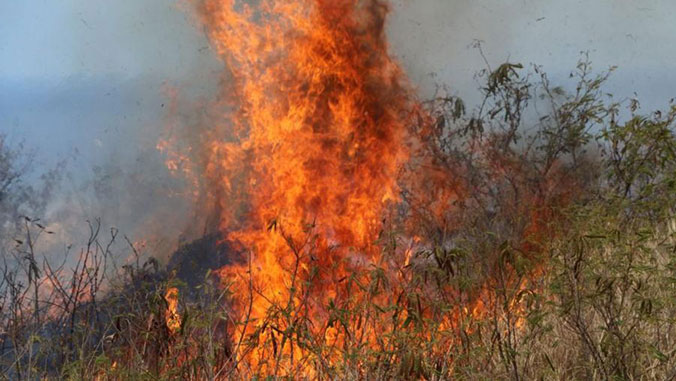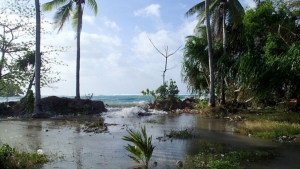
Pacific Islands are on the forefront of bearing the effects of climate change, which are becoming more apparent every year. With partners from across Hawaiʻi and the U.S.-Affiliated Pacific Islands (USAPI), the Pacific Islands Climate Adaptation Science Center (PI-CASC) organized a virtual science summit to highlight its resources and capabilities, and those of its partner organizations, for addressing climate adaptation science and management needs. The PI-CASC summit was hosted virtually through the University of Hawaiʻi at Mānoa in conjunction with its consortium partners at UH Hilo and the University of Guam on November 17 and 18 from 1 p.m. to 4 p.m. (HST).
PI-CASC works with natural resource managers and cultural stewards in the Pacific Islands to address challenges through the latest and best-available science on climate change impacts and adaptation.
The summit was intended for researchers, cultural and natural resource managers, officials, practitioners and stakeholders who work on climate change impacts and adaptation for ecosystems and communities in the region. By sharing recent and ongoing research and related resource management efforts in Hawaiʻi, and the USAPI and PI-CASC hoped to highlight and strengthen partnerships and collaborations.
“The climate crisis is the most critical issue facing future generations, and despite the challenges of the pandemic, the virtual platform of the summit allows for more robust participation from researchers, managers and partners from across the region,” said Darren Lerner, the PI-CASC university consortium director. “We were thrilled to engage more than 200 people in this inaugural summit.”

Panel of climate commissioners
The two-day summit commenced with a welcoming address and a panel of climate commissioners, moderated by UH Mānoa Provost Michael Bruno. Panel participants included: Evangeline Lujan, chair of the Guam Climate Resilience Commission; Xavier Matsutaro, head of the Office of Climate Change as the National Climate Change Coordinator of Palau and Focal Point to the United Nations Framework Convention on Climate Change; and Suzanne Case, co-chair of the Hawaiʻi Climate Commission and chair of the State of Hawaiʻi’s Department of Land and Natural Resources. These dignitaries shared their governments’ efforts and science needs related to climate adaptation, particularly for natural and cultural resource management.
A second panel of representatives from several PI-CASC regional partners focused on federal-university relationships in climate adaptation research and science in Hawaiʻi and the Pacific Islands, highlighting their resources and capabilities for addressing climate adaptation science needs in the Pacific region. Organizations represented included U.S. Geological Survey, Pacific Regional Integrated Sciences & Assessments, Water Resources Research Center, USDA Southwest Climate Hub, Heʻeia National Estuarine Research Reserve and UH Sea Grant College Program.
Other areas of focus
The remainder of the first day and beginning of the second day featured research and resource management “lightning talks,” presenting ongoing work across six different focal areas important to the region: changing plant communities, changing landscapes: fire and drought, changing landscapes: water resources, biocultural connections, and sea-level rise and coastal resilience. These presentations were followed by breakout discussion groups in the six areas, a prime opportunity for participants to offer their input on the direction of future actionable science efforts.
“We were excited to meet as a large group with our regional partners and stakeholders to talk together about our mutual concerns for addressing climate change adaptation,” said Mari-Vaughn Johnson, the USGS federal director for PI-CASC. “Cultivating larger collaborative networks is integral to supporting communities across the Pacific in developing sustainable solutions to challenges posed by climate change.”
For further information, visit the summit webpage.
–By Rachel Lentz

